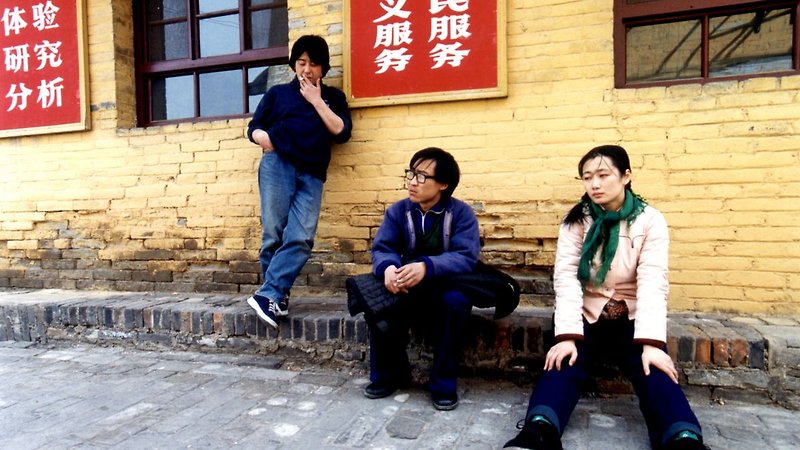
Screened as part of NZIFF 2001
Platform 2000
Zhantai
Jia Zhang-Ke’s remarkable Platform [is] a superbly detached three-hour epic that, spanning the 1980s, meditates on the changes of that period through the mutation of the propaganda-performing Fenyang Peasant Culture Group into the equally cheesy All Star Rock and Breakdance Electronic Band.
The 31-year-old Jia, who is an independent rather than studio filmmaker, has a strong visual style (scrupulous compositions based on long fixed-camera ensemble takes) and a powerful set of thematic concerns (the spiritual confusion of contemporary China, caught between the outmoded materialism of the Maoist era and its market-driven successor), as well as a vivid sense of place (dusty, inland Shanxi province). Following on his 1997 début, Xiao Wu, the semi-documentary story of a supremely diffident Fenyang pickpocket who fails to adapt to China’s new liberal economy, Platform puts Jia at the forefront of current Chinese cinema.
Elliptical yet concrete, Platform is a laconic tale of lackadaisical love and even more haphazard entertainment, as played out in a series of unheated factory halls and outdoor courtyards. The environment is at once dreary and exotic, prison-like and vast. The group tours throughout the Chinese interior; the Great Wall, casually used as a place to rehearse or tryst, is a recurring visual motif. Geographic markers are matched by the precise fashion changes in hairstyle and dress that Jia uses to indicate the passage of time. Platform – which takes its title from a Chinese hit rock song of the 80s – is pop art as history. Paeans to Chairman Mao are supplanted by Taiwanese rock anthems (Gen-Gen-Genghis Khan); communal screenings of the 50s Hindi musical Awaara give way to ‘marital aid’ sex education videos; braids become perms; suddenly, one notices color TV.
With its objective, almost clinical viewpoint and lovingly chosen, generally bleak locations, Platform looks like a documentary. But, perhaps influenced by Hou Hsiao-Hsien’s The Puppetmaster, Jia finds many subtle ways to transform the world into a stage…
Jia also uses a distanced camera placement for maximum context. There’s a quietly magnificent, deeply melancholy shot of the hapless Electronic Band, listlessly pelted with garbage by one of its first audiences, performing by the side of a highway on the banks of the Yangtze, boats full of Panasonics floating past. The penultimate image, held long enough for the full weight of quotidian despair to infect the audience, is the epitome of the film’s odyssey from kindergarten collectivity to failed privatization. — J. Hoberman, Village Voice, 2/3/01